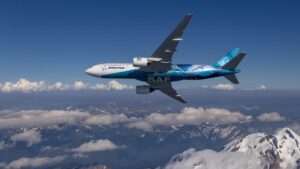Boeing helps chart path towards sustainable aviation in New Zealand

“The opportunity to secure New Zealand’s long-term aviation fuel supply, boost economic growth and help meet ambitious climate goals through SAF is compelling,” said Dr Kimberly Camrass, Boeing acting regional sustainability lead, Asia Pacific. “Overall there’s a clear case to act now, and a clear set of potential steps.”
The report outlines the benefits of defining acceptable feedstocks and certification standards, linking SAF to the national Emissions Trading Scheme, establishing a policy framework to support investment into SAF, and create a strong demand and investment signal at a leadership level.
"Additionally, New Zealand's reliance on imported jet fuel highlights the need for a domestic SAF supply. This is critical for reducing emissions as aviation could rise to represent 22% of the country’s gross emissions by 2050 if no action is taken, but also for ensuring sovereign security,” said Camrass.
More than 190 countries, including New Zealand, have agreed via the International Civil Aviation Organisation to reduce carbon intensity of aviation fuel by 5% by 2030, and approximately 45 countries are already implementing or committed to SAF policies, including all of New Zealand’s top ten trading partners.
The New Zealand SAF study, which is part of Boeing’s commitment to the aviation industry’s goal to achieve net zero emissions by 2050, was unveiled at a New Zealand industry Policy Roundtable on Aviation Decarbonisation held in Wellington.













